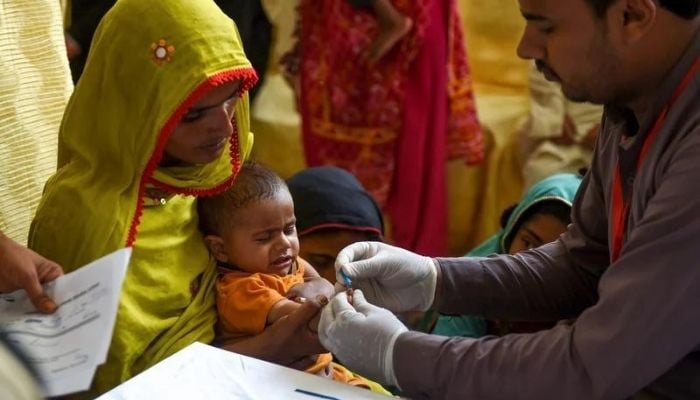An estimated 200,000 people are living with HIV/AIDS in Pakistan, says UN
World marks World HIV/AIDS Day 2021, teaching people about the disease and the consequences of delayed diagnosis
December 01, 2021

There are 200,000 people living with HIV/AIDS in Pakistan, of whom 32% are women and 3% are children, according to UNAIDS and other international agencies said Wednesday, as the global community marks World AIDS Day — December 1.
The rest are key populations such as transgenders, intravenous drug users, and male and female sex workers, as per former Project Director of the Sindh HIVAIDS programme, Dr Sharaf Ali Shah.
According to Dr Irshad Hussain Kazmi, deputy director of infection control diseases, out of 200,000 HIVAIDS cases, 100,000 are in Punjab, 87,000 in Sindh, and 13,000 in the rest of Pakistan.
In Pakistan, it is observed that roughly 25,000 new cases have developed in 2020, amidst a peak coronavirus pandemic.
In our society, there is a stigma around HIV/AIDS. While it is believed that the disease is transmitted via sexual intercourse; intravenous drug users are the main source of transmission and dissemination of the disease in Pakistan.
"We have to promote mass awareness and try to persuade people to do their HIV tests, which is absolutely free of charge in 16 centres in Sindh and 29 centres in other regions of Pakistan," Dr Hussain added.
Sources in the health department of Sindh confirm that the service delivery packages, which are mostly for treatment and care of transgender people and drug users, have been discontinued for the last five years, but Dr Hussain denied this and said treatment and medicine are available in all the centres.
Sources in Sindh's Health Department confirm that service delivery packages, which are primarily for the treatment and care of transgender people and drug users, have been discontinued for the past five years, but Dr Hussain refutes this, claiming that treatment and medicine are available in all centres.
"We need to reach the remaining 78% of individuals who are not going to clinics for their check-ups and treatment, or the number will rise, which we cannot afford," said Dr Shah.









